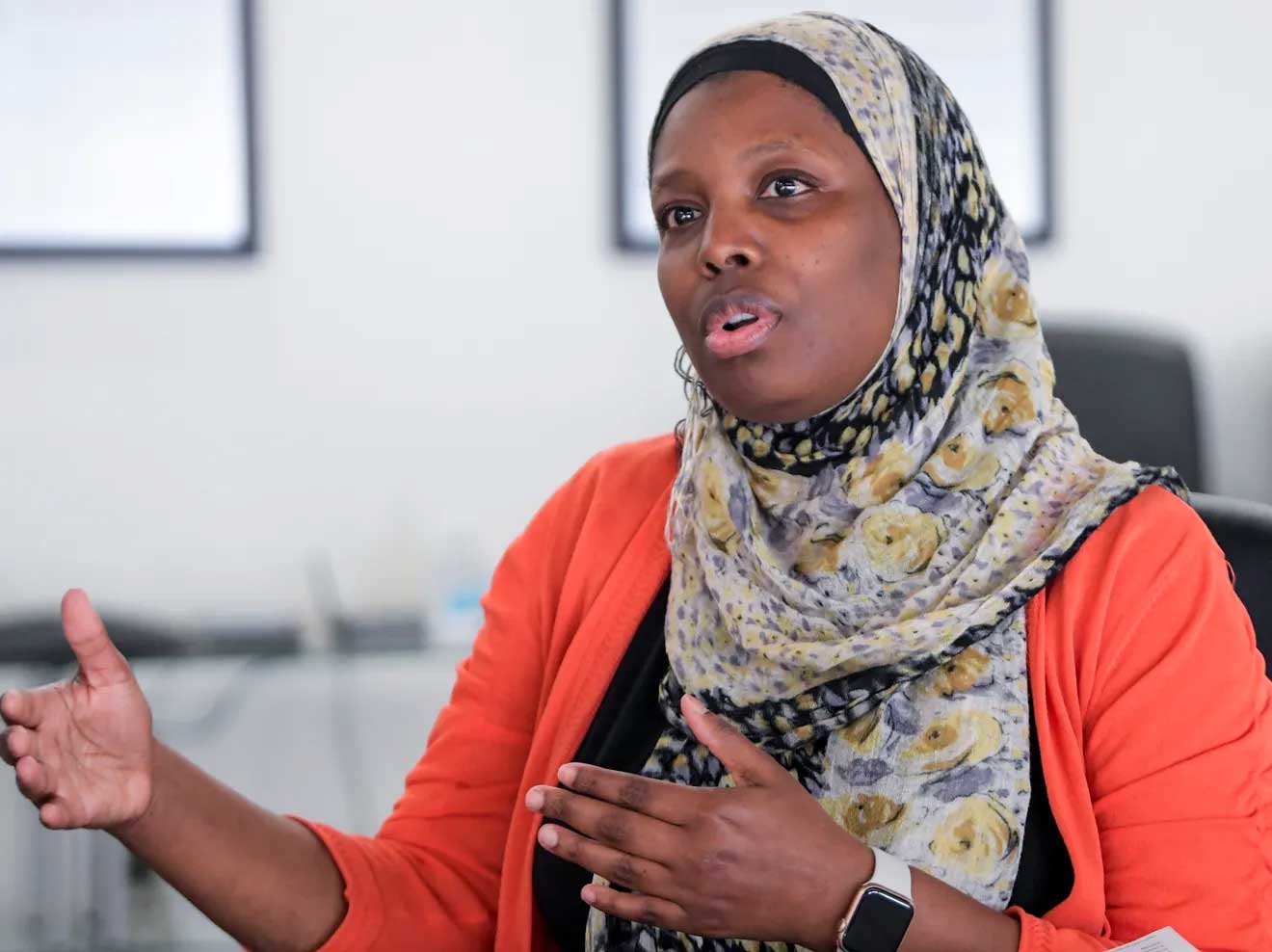In its first year, EJI’s hunger relief program provided food support to more than 2,000 families across Alabama, which has one of the highest rates of hunger in the nation.
The Montgomery Advertiser recognized the program’s powerful impact on participants in a recent report that describes EJI’s unique approach to addressing food insecurity in our state.
Rising Food Insecurity, Especially in Alabama
The winding down of pandemic-era assistance coupled with high inflation has contributed to a distressing increase in food insecurity across the country.
When we announced our Anti-Poverty Initiative in 2022, more than 44 million people in the U.S. were experiencing food insecurity.
Hunger in America has continued to rise sharply.
And it remains particularly acute in the South, which has the highest official poverty rate in the country, the highest rate of food insecurity, and the least access to health care.
Alabama consistently ranks in the bottom five on indicators like infant mortality, overall child well-being, and life expectancy, was recently found to be the sixth unhealthiest state in the U.S.
A Different Approach to Assistance
To address this crisis in Alabama, EJI decided on a different approach—providing prepaid cards that families can use to buy groceries without restrictions, requirements, or judgment.
“We wanted to empower individual heads of households to have the resources to address the problem of food insecurity in a way that works best for them,” EJI Director Bryan Stevenson told the Advertiser.
Each month, EJI distributes prepaid cards loaded with $415 to people across the state who decide how to use the funds to support their family’s specific needs—from baby food and diapers for families with infants to fresh produce and specialized foods that doctors recommend for treating certain medical conditions.

Chief Operations Manager Ayisha Abdur-Rahman. (Mickey Welsh/Montgomery Advertiser)
“I trust the heads of household to make good decisions about how to take care of their families, and that’s been reinforced by our experience with the families that we work with,” Mr. Stevenson said. “They’ve been very, very capable and effective at making this enhance the quality of their lives.”
Mr. Stevenson decided not to restrict what participants can buy with their cards after seeing someone criticized for using federal SNAP benefits to buy a birthday cake.
“Just because you’re poor doesn’t mean your life shouldn’t be celebrated on your birthday. Just because you’re poor doesn’t mean that you’re not capable of being a fantastic parent to your children,” he told the Advertiser.
“It’s been important to us that the cards we give people look just like the cards that everybody else uses. If they choose to buy a birthday cake for their five year old or if they choose to buy cereal that has a gift inside or something like that, that’s not a bad choice.”
Life-Changing Impact
Chief operations manager Ayisha Abdur-Rahman, who leads the hunger relief program along with project manager Richard Burton, pointed out that the program’s impact has extended beyond food.

Project Manager Richard Burton along with Chief Operations Manager Ayisha Abdur-Rahman. (Mickey Welsh/Montgomery Advertiser)
She told the Advertiser about one participant, a young mother living in an apartment, who was determined to move her family into a different home.
“She was able to utilize the resources that she was getting through the hunger relief program, and that allowed her to put other funds away to help her meet that goal of actually being able to move her family into a home,” Ms. Abdur-Rahman said. “That felt really good.”
With a growing waitlist of families in need, EJI hopes to double the number of families in the program this year. Most families participate in the program for three to six months.
Four months of support was all that Montgomery resident Kimberly Brown needed to weather the financial stresses and food insecurity that threatened her family and find a better job, the Advertiser reports.
“That card allowed me to still be able to pay my rent and go buy food, juice and water,” Ms. Brown told the Advertiser. “My baby has to take a lunchbox to school every day. That allowed me to help make sure that she had a healthy lunch. And not only a healthy lunch, but some gloves, a hat and a coat for the cold season. It really, really helped me with the necessities that I just didn’t have at that time.”
She was reluctant to ask for help, she said, but she’s glad she did.
“Sometimes you need that extra help to push you on to the next step or just to fill up your fridge or your freezer,” she said. “I’m not the type to just reach out quickly and ask for help, but when you need it, don’t be afraid to ask. It can be a game changer, a life changer. It was for me.”
For more information about our hunger relief program, email us at [email protected] or call 334-269-1803.